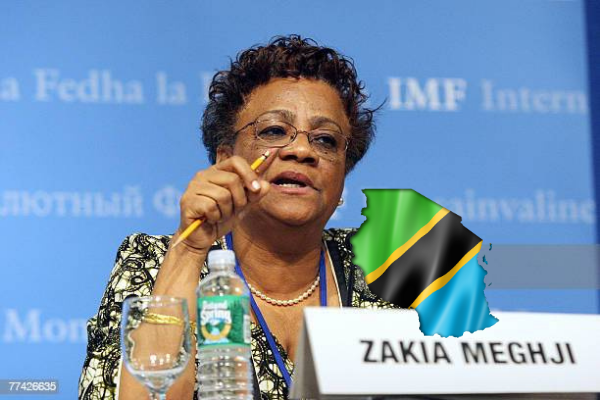
I Wish Hon. Meghji Was Truly Pro-Women in Outlook
- Category: Gender
- Date 09-07-2006
- 817 views
The Minister of Finance Hon. Zakia Meghji has stressed, “As the first woman Finance Minister in the East and Central African region, I saw it was important that the budget targets women who make over 50% of the Tanzanian population … to help them get loans at affordable rates so that they make significant profits that can help them end their poverty.” (See: “My budget is for women, says Meghji” – Sunday Citizen 25 June 2006, page 4).
As Meghi’s remarks were made with near hysterical obsession, one wishes they were a deliberate and sustainable proposition undertaken by government in its poverty eradication endeavour. Once there is an economically empowered female population, no doubt, men will intrude as partners to reap the dividends, and thus the economy would boom.
Hon. Meghji also revealed that government, along with Bank of Tanzania, has formed a task force to study the issue (of women economic empowerment) and will soon give a report. It is thus my belief that as the matter is being reviewed, everyone interested in the development of the country should make input to enrich the report and also enable the would-be beneficiaries owns its recommendations, which makes it easy to implement.
Economic empowerment of women has always been desirable. Earlier on, a 1995 Council of Ministers for the Organisation of African Unity (OAU; or current African Union – AU) sitting in Addis Ababa, Ethiopia highlighted how needful indeed it is.
The Ministers noted that whereas women in Africa constitute only 52 percent of the total population, they do 75 percent of the agricultural work and produce and market 60 to 80 percent of our food. Here, the men’s contribution is considerably nonexistent. What is interesting however is that in the formal sector, the female labour force in sub-Saharan Africa stands at 34 percent; earning only 10 percent of the income while owning 1 percent of the assets.
This could partly be attributed to the fact that a commanding majority of women live and work in the rural areas where economic activity is extremely narrow, therefore access to wealth and assets accumulation are nearly impossible. In short, for Hon. Meghji’s budget to make the impact she claims to pursue, it must largely target the rural women, or it will simply exacerbate the poverty levels of the most wretched while enriching her own class of women.
It is therefore important to consider rural economic empowerment projects for women as a way to promote their economic rights and enable them shape their destiny, because while they are poor, they will always be oppressed. Canadian Ambassador to Zimbabwe Ms Roxanne Dubé was apt when she said recently, "I cannot think of any other right for women than the right to earn money and the right to earn a living on their own."
Hence, continued advocacy in governmental and private sectors to increase awareness of women's economic rights must be done, other than isolated ministerial pronouncements to the press. There is also need for government to generate more economic opportunities for women not only by helping them access loans but also by facilitating the promotion of their entrepreneurial skills.
Today, the majority of the active female population is confined in the micro, small-scale enterprises and the informal sector. Whereas more and more women are seeking self-employment in the formal private sector, their integration is still constrained by limited access to credit, property, technology and technical skills.
The 1995 OAU session had recommended each country to establish a full-fledged commercial bank for women, whose services and products offered by the bank would nevertheless be open to the general public. Such a women's bank at national level could be instrumental in mobilising savings, financing capacity building programmes, and mediating with existing banks to make credit guarantee arrangements for women. Micro finance schemes, including group financing without collateral, could be worked out ensuring that defaulting does not occur.
All interventions must also recognise the differing needs of women in rural and urban areas so that priorities are clearly set. If not, one category of women will have everything, another none! Hon. Meghji might also have to push her government to include representatives of female entrepreneurs in all relevant trade and commerce structures.
Finally, girl child education must be addressed to encourage positive socialisation, promote self-development and enable full utilisation of available opportunities. This would enlighten society about the central role of women in economic development, to assist in changing public attitudes towards women's involvement in economic decision-making.
By Venansio Ahabwe
Source: Peering Eye, Sunday Citizen
